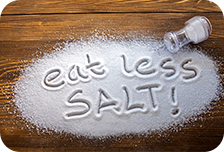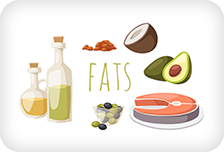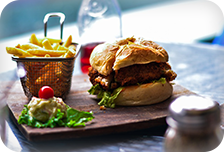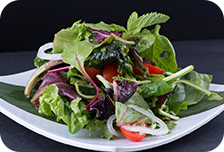How is Diet Related to Angina?
There is an undeniable correlation between heart health and nutrition. Grab a bite of heart-health by changing your dietary habits.
Some suggestions for a healthy heart. Please however consult your physician/doctor before making any modifications in your diet or otherwise taking any decisions regarding your nutrition.

- Opt for whole grains
Whole grains are wholesome – they provide antioxidants and fiber, in addition to carbs that are needed for energy. Incorporating whole grains in your diet is a great start!
Eat healthy dishes made from:

- Limit salt
Salt causes fluid retention, which raises blood pressure and can worsen angina. Angina patients should consume less than 6 gm/day of salt.
Some good ‘low salt’ habits include:
- Learn to flavor food with herbs and spices so that you can lower your salt consumption
- Limit the use of canned products and convenience foods.


- Cut back on sugar
Just like too much salt is bad for the heart, too much sugar is bad for you too! Not more than 6-8 tablespoon of table sugar should be consumed in a day. Sugar has been linked with diabetic obesity, risk of heart disease.
Cut back on sugar by swapping aerated drinks with plain water, tender coconut water or unsweetened lemon juice.
- Limit unhealthy fats
If you have angina, limiting how much saturated and trans fats you eat is an important step to reduce your blood cholesterol and lower your risk of developing a heart attack in the future. You can reduce the amount of saturated fat in your diet by choosing lean meats and skim dairy products.
- Say YES to: Olive or , cold-pressed oils, safed sarson ka tel, nuts, seeds, avocados, vegetable and nut oils
- Bid Goodbye to Butter, hydrogenated vegetable oils, cream sauce, dalda, margarine, cottonseed, and palm-kernel oils.


- Say No to processed food
Processed foods may seem convenient, however, this convenience may hide high levels of sugar, salt, fat, and preservatives. It is best to limit processed foods if you want a healthy and hearty future.
Cut down ready-to-eat packaged foods, instant take away foods like pastries,doughnuts, biscuits, pizzas, fried fish, hamburgers, ready-to-eat meals, and packaged snacks.
Limit whites like maida (white, refined flour), sugar, white bread, and butter.
- Consume green vegetables
Vegetables are nature’s gifts to great health. They are rich in micronutrients like vitamins and minerals and also have a bevy of phytonutrients. Add leafy greens like spinach, kale, and collard greens to your diet. Consume beans like lentils, split peas etc. often. Make salads with lettuce, cucumber, beets, cabbage, carrots, and tomatoes. See that at least two-third of your plate has veggies. Choose salads and soups instead of starters while eating out. Spice up your curries and sabjis with garlic which is heart friendly.


- Add fresh fruits and dry fruits to your diet
Fresh fruits and dry fruits provide many phytochemicals and antioxidants that can protect your heart and enhance your overall wellness.
Eat seasonal and fresh fruits like strawberries, blueberries, and raspberries.
Citrus fruits like oranges and sweet limes are rich in Vitamin C and are also beneficial.
Dry fruits like walnuts, almonds etc. have an array of vitamins and minerals and also serve as a good source of healthy fats.
Make it a habit to have a fruit and a dry fruit every time you have a meal. Also, replace your sugary or fried snacks with fruits and nuts


